Geovanny Villalba-Aleman, an international student from Ecuador and recent graduate of the University of Waterloo, pleaded guilty to four assault-related charges nearly a year after a terrifying attack on campus.
A professor and two students were stabbed in the middle of a gender studies class.
Details, including audio of the attack and video of Villalba-Aleman’s abrupt confession in the aftermath, were revealed during the court proceedings that followed.
In the agreed statement of facts, court heard Villalba-Aleman stabbed the professor in the face and arm, a student in the back and another student in the arm and hand. He also attempted to stab a third student, who got away.
The entire attack lasted about two minutes.
“Someone’s stabbing us!” one person could be heard yelling on the recording that was played in court. “Please call 911!”

Police body camera footage also showed how Villalba-Aleman initially pretended to be a victim of the rampage.
He was found in a nearby room, where he described to an officer how the perpetrator used two kitchen knives.
Then, suddenly, he admitted to being the attacker.
“You know something, actually,” he said.
“What’s up?” the officer replied.
“Can you please handcuff me? Because it was me,” Villalba-Aleman said, holding out his hands.
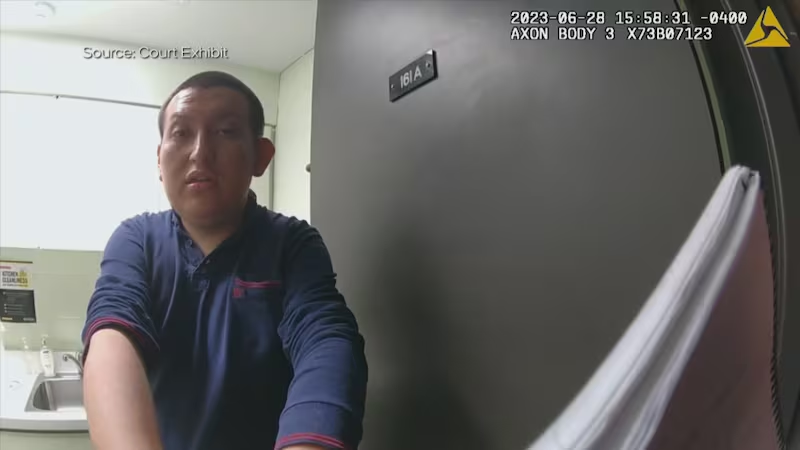
He then told police he had knives, which officers later found in his backpack.
Court also heard Villalba-Aleman left a ripped Pride flag in the classroom.
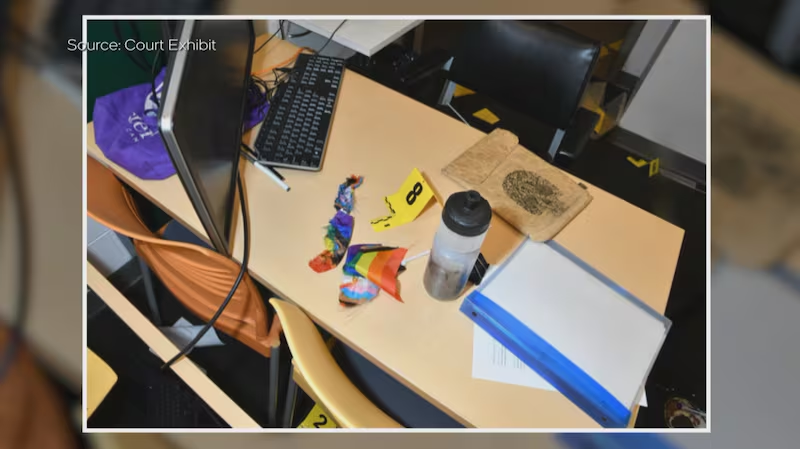
On June 28, the university held an event to mark the one-year anniversary of the attack. People gathered in Hagey Hall, where it happened, and students and professors reflected on the pain felt across the campus.
“After the event, there was a lot of fear,” Amberlee Morgan, a student, told CTV News at the time. “I, myself, am queer and I have a lot of friends who are queer, and the thought was: ‘How are we supposed to feel safe here?’”
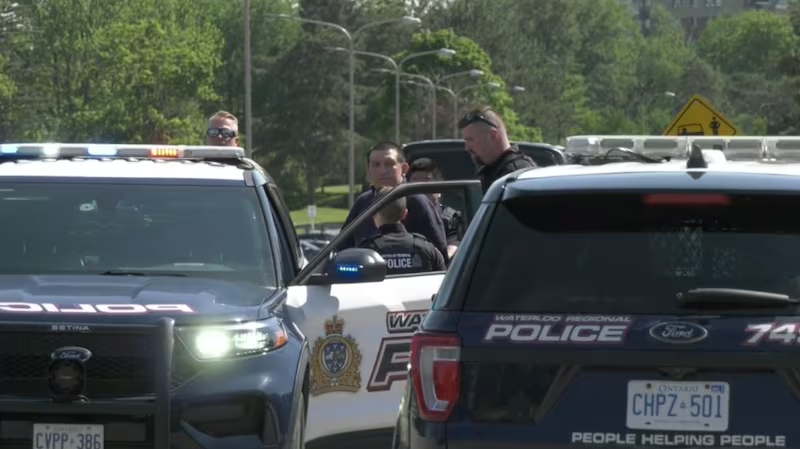
Villalba-Aleman’s sentencing hearing was held over five days in October 2024.
On the first day, court heard victim impact statements, including one from the injured professor, Katy Fulfer, who described the pain, fear and guilt she felt in the aftermath.
“Sometimes I would wake up, face soaked in tears from crying in my sleep,” she said.
She explained she now finds herself surveilling the room while teaching, “feeling suspicious of people trying to enter the class.”
Fulfer also expressed concerns about people who praised Villalba-Aleman’s actions.
“It normalized anti-queer, anti-trans violence at the university,” she told the court, adding she “fears others may be emboldened. That others may do the same.”
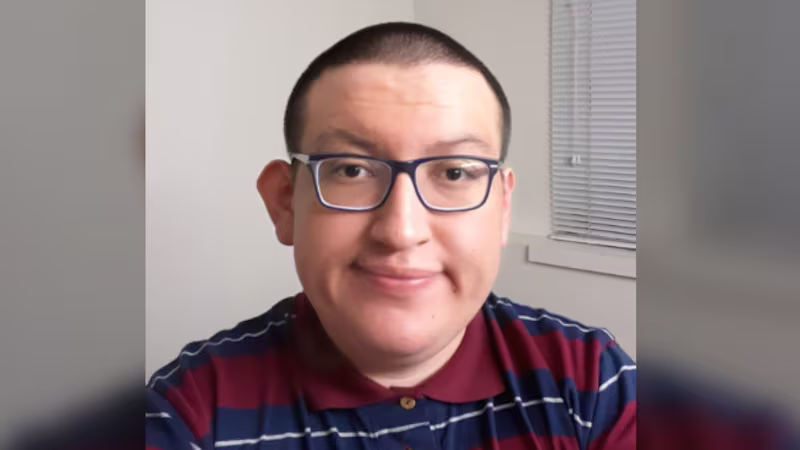
Student victims also submitted written impact statements, describing the long-lasting effects of the stabbing, and the difficulty they experienced in returning to school and normal life.
In subsequent days, another video was entered as an exhibit, showing Villalba-Aleman speaking with police following his arrest, where he told the officer that he intended for the attack to be a ‘wake up call.’
“I was concerned about the ideologies,” he said.
“The ideologies?” the officer replied.
“Yeah, the gender studies,” Villalba-Aleman responded. “They were gender studies.”
Villalba-Aleman’s ideologies became a focal point during arguments around his sentence and whether he would be convicted on a terrorism charge.
The crown noted that Villalba-Aleman didn’t have a ‘tidy’ ideology but rather a collection of extreme right-wing views.
Justice Frances Brennan said without a single, clear and identifiable ideological framework, it would be difficult to determine if his actions were ideologically driven.
“I’m concerned the definition you are asking me to adopt is so broad we will dilute what we mean by terrorist motivation,” Justice Brennan stated.
Federal Crown prosecutor Howard Piafsky argued a loosely organized ideology is what terrorism legislation was meant to cover.
“It's not a requirement to show a tidy ideological view,” she said. “It has to be beyond a personal belief, it has to be beyond just a personal grievance.”
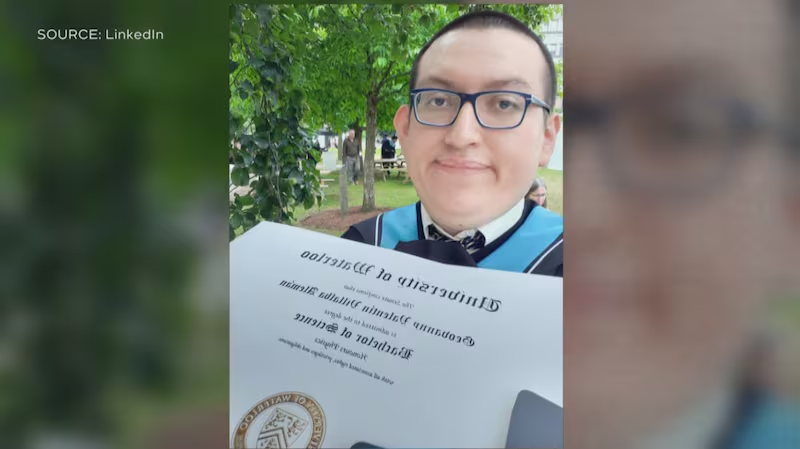
Following the sentencing submissions, Villalba-Aleman stood and addressed the court.
“I just want to make verbal apology to anyone affected. Violence is not good for any reason,” he said. “Even though people may not believe in my apology... I acted dumb.”
Villalba-Aleman is scheduled to return to court on Jan. 27, 2025, when he’ll learn how much time he’ll spend behind bars.
The Crown has asked for a sentence of between 10 and 16 years, depending on whether the judge finds Villalba-Aleman guilty of terrorism and if she finds his acts were hate-motivated. They will also be seeking a deportation order after he serves his sentence.
Villalba-Aleman’s lawyers, meanwhile, are asking for a sentence between five to eight years.



































































































